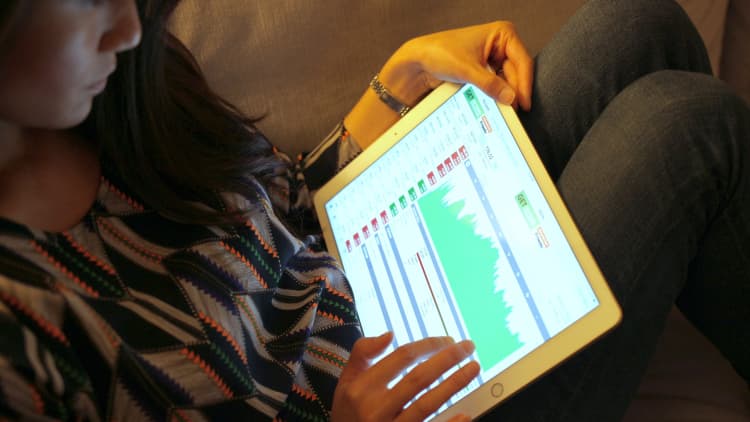One in three Americans are worried about losing their life savings amid the coronavirus pandemic, according to a recent survey of over 2,000 U.S. adults by the Nationwide Retirement Institute.
But when it comes to long-term investments like retirement savings, experts say that Americans shouldn't panic. While the S&P 500 index fell by 30% during the early days of the coronavirus pandemic, the market is starting to rebound. On Tuesday, the S&P 500 rallied above 3,000 points for the first time since March.
That's not to say the stock market is completely recovered. Although the Dow Jones Industrial Index had its best performance last week since early April, the index is still down 12% for the year. The S&P 500 is down 7.4% for 2020. The Nasdaq, which leans heavy toward tech stocks, is up 4%.
Even if markets do continue to decline amid the ongoing coronavirus pandemic, savings in employer-sponsored retirement plans haven't historically dipped as much as the general market, according to data from the Investment Company Institute.
Source: Investment Company Institute
When the so-called dot-com bubble burst in 2000, the S&P fell by 31% from the end of 1999 to the low point in October 2002. But 401(k) plan balances only dipped by 8% before recovering completely and then some, says Sarah Holden, a senior economist at ICI who focuses on retirement.
During the 2008 financial recession, the S&P 500 fell by 37% from the end of 2007 to the low point in March 2009, while 401(k) balances fell 26%, Holden says. In both recent financial downturns, 401(k)s and retirement plans held up better than the overall market and later rebounded.
That's due, in part, to the fact that these plans tend to contain a well-diversified, balanced investment mix. They're not just invested in stocks, but also in bonds, real estate and other investment classes. Having a balanced portfolio means that you're spreading out your money across different investments to reduce your overall risk. This also allows you access to other assets that may outperform stocks at times, since the past performance of stocks may not carry into the future.
Source: Investment Company Institute
"We've seen in the 401(k) participants that their account balances did go down, but then rose and went back up again," Holden says. Yet even when the balances did dip, it was a "muted effect" compared to the wider market.
Retirement plans also tend to hold up a little better because participants tend to continue to invest, even during market downturns, Holden says. In many cases, Americans have automatically set up contributions from their paychecks to their 401(k), and they usually don't disable that.
During the coronavirus pandemic, that has remained the case: About 49% of Americans, both working and unemployed, say they're contributing the same amount to their 401(k) plans now as they did before the pandemic hit, according to a recent Bankrate survey. About 18% say they're contributing less.
"With regard to the retirement savers, the takeaways are that the system has in place a lot of discipline to help them keep at it. And we know that regardless of what the market's doing, they do tend to keep at it," Holden says.
Check out: The best credit cards of 2020 could earn you over $1,000 in 5 years
Don't miss: The 3 best money moves you can make right now, depending on your financial situation



